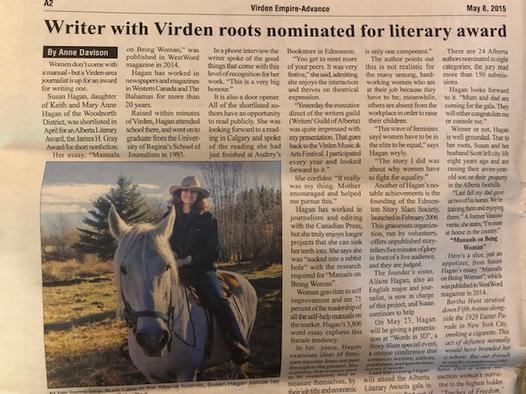Writers are Nuts
Mary Godwin and her lover, Percy Bysshe Shelley, traveled Europe. She got knocked up, which did not please Shelley’s pregnant wife, Harriet. Here, we find the root of soap operas: Harriet drowned herself, freeing Mary and Percy to marry. They lived a vagabond existence, traveling, writing, socializing. Only one child out of several survived. Percy drowned while sailing six years into their marriage. She kept his shiveled heart in a desk, along with locks of hair from her dead children.
While traveling, great writers sampled the darkness and the delights. And there is nothing better to comfort on the journey than a brain-altering substance. Really, with all their tortured truth seeking and low pay, the least a writer is owed is the opportunity to get a little wasted on occasion. After skipping out of Mexico to avoid his little “legal problem,” Burroughs hunted South America for Yage, a drug rumoured to have telepathic powers, unveiling tantalizing mysteries beyond the normal brain. Hunter S. Thompson made a living out of getting wasted. He got fired a lot, rode with the Hell’s Angels and got beat up. Now that’s a life. “I wouldn’t recommend sex, drugs or insanity for everyone, but they’ve always worked for me,” goes a famous Thompson quote.
Writers have difficult things to say. Mary Wollstonecraft proclaimed that women deserved equality in her book, A Vindication of the Rights of Women. That was brave. And so was her unconventional life for the 18th century, complete with love affairs. Her personal life, published in Memoir after her death, ruined her name for a century. Our world would not be the same if Wollstonecraft never had the courage to live and write. She died days after giving birth to Mary Godwin Shelley—the mother of Frankenstein. Though she never knew her mother, Shelley was inspired by her legacy. Great writers with big thoughts who truly explored this world were angst ridden—look at Charles Darwin. He feared his own ideas about evolution and natural selection; people had to be convinced to allow reason to rule. Darwin was stressed and sick while writing only in his diaries. After hiding the truth within himself for years, he finally shared vital information that would transform the world.
Great writers from the past are complicated people who are obsessed with sex. Burroughs severed his little finger to impress a man, with whom he was infatuated; he then wrote it into a story. The Bloomsbury Group acted like bonobos—so did Mary Shelley’s gypsy crew of writers. Joyce wrote pornographic letters to his wife, describing lurid acts involving watching her poo.
Not even drugs or sex on the physical journey can compare with what writers have freed within their minds. I asked my psychologist friend why so many writers are nuts when they are generally less constrained than regular folks: “People with mental illness are drawn to figuring it out.” Simple enough, but let’s not leave it there. “I’ve read that shrinks are crazy too,” I said, trying not to be insulting. We talked on about it for more than an hour—we could have discussed madness for an eternity because nothing is more fascinating to a psychologist and a writer (so as long as we’re clear that the world is being counseled by crazy shrinks and imagined by mad writers).
Carl Jung was fascinated by literary figures of the time—actually, they got a real kick out one another. Jung figured Joyce was schizophrenic after reading Ulysses (Jung also diagnosed his daughter with the same condition). Jung and Hermann Hesse spent hours delighting in deep discussions about what makes us human and how to define the darkness. It’s nice to find people who will talk like that instead of looking at you oddly and backing away in fear. Hesse craved spiritual growth through confrontation with his soul. This takes awhile, so time is the most priceless possession to a writer. Hesse was lucky enough to have been packed off to a mental institute after he tried to commit suicide as a teenager—nothing creates a writer faster than incarceration. He wrote Demian in three weeks after a spell in an asylum. Siddhartha is a spiritual quest of the evolving human journey—it reads like a river flows, but he experienced great bouts of writer's blocks and sought Jung’s help out of that prison. Jacquers Lacan, a psychoanalyst who studied Joyce’s work, concluded that writing saved him from psychosis.
It’s just as true that writers haved sacrificed their sanity. Leonard Woolf believed that his wife’s crashes into suicidal despair were the consequence of writing—after working intensely, she would dive into paralyzing depressions where she could neither read nor write—in other words—hell. Jung entered a psychotic state when he penned Liber Novus, a literary work with content that has been compared with Homer’s Odyssey. Jung worked on it between 1914 and 1930, but his heirs kept it locked in a vault in Switzerland until 2009. Jung’s quote on the book jacket describes what happened when he fearlessly explored his mind and wrote in a literary style: he went beyond theory and into knowledge. “The years… when I pursued the inner images, were the most important time of my life. Everything else is to be derived from this. It began at that time, and the later details hardly matter anymore. My entire life consisted in elaborating what had burst forth from the unconscious and flooded me like an enigmatic stream and threatened to break me. That was the stuff and material for more than one life. Everything later was merely the outer classification, scientific elaboration, and the integration into life. But the numinous beginning, which contained everything, was then.”
These writers who isolated themselves in dark rooms and went insane changed the world. Hesse spoke out against patriotism in Germany during the First World War; Maxim Gorky, along with other Bolsheviks tried to create a religious atheism—replacing God with humanity. Wollenstonecraft, Woolf and Mary Shelley advanced the rights of women to own property, vote and choose our lovers. Darwin explained how we evolved these big complicated messed-up brains that create poetry, art and independent thought. Our brains work the way they ought. The great writers let go on purpose.
To do this, these great writers needed help to keep them in the world. The lucky ones had an understanding spouse and fearless friends who believed in them. Harriet Shaw Weaver supported Joyce financially and Eugene Jolas took care of him while he wrote Finnegan’s Wake, written in obscure language—the book begins with the end of a sentence and ends with the beginning of the sentence, to be read infinitely. That kind of a mind is exhausting: Joyce needed someone to hold his hand while his brain twisted. Mrs. Woolf needed a rare man like Leonard: “..her thoughts would begin to race through her mind and she couldn’t sleep. She was always a bad sleeper. And if that was allowed to go on she reached the state in which she couldn’t think of anything clearly, and it became worse and worse until she was eventually what everyone would call insane.” Burroughs received a $200 a month allowance from his parents; Mary Shelley worked out an allowance from her father-in-law so she could write. Twain had a wealthy friend who paid his debts and advised him after bad investments. (Writers may be bad at sanity, but are really good at borrowing money.)
No matter how much they were protected, some crazy, brilliant writers needed out. Nikolai Gogol was an early 19th century Russian writer who created bizarre worlds like the story The Nose, in which an official’s nose leaves his face to begin an independent life. Gogol began to fear his own imagination when a friend ranted about the devil. When he was 42, Gogol burned some of his manuscripts, went to bed, stopped eating and died nine days later. At 59, Woolf stuffed her pocket with rocks and walked into the river near her home, ceasing the incessant chatter in her brain. Thompson shot himself in the head when he was 57. His friend Ralph Steadman wrote: “He told me 25 years ago that he would feel real trapped if he didn’t know that he could commit suicide at any moment.”
The most dedicated and gifted writers have nudged humanity bravely forward, lifting us from total darkness into a very thick fog. They questioned their existence, explored their lives, and challenged the world around them, which makes you completely nuts. Writing made them crazy. Crazy made them write.
Published in WestWord, Jan 2010
“Shrinks are nuts, too,” The Globe and Mail, Nov. 15, 2009
The Dana Foundation: The Paradoxal Creative Brain, Jan. 1, 2006
Recollecting Virginia Woolf, Edited by Joan Russell Noble
Virginia Woolf, An Illustrated Anthology
A Room of One’s Own, By Virginia Woolf
The Essential James Joyce, James Joyce
Wikepedia
“The Holy Grail of the Unconscious,” Sept. 16, 2009, The New York Times Magazine
Jung, Carl Gustav (2009), The Red Book (Liber Novus), Sonu Shamdasani ed.
Darwin’s Brave New World, The Nature of Thing, CBC
Great writers create dramatic lives, mirroring an inner struggle that has drawn them into a web of knowledge, beauty and darkness. Viriginia Woolf, by many accounts including her own, enjoyed the ride, preferring madness to trivial pursuits that grow uninspired lives. “As an experience, madness is terrific, I can assure you, and not to be sniffed at; and in its lava I still find most of the things I write about,” writes Woolf in a 1930 letter to Ethel Smyth. “It shoots out of one everything shaped, final, not in mere driblets as sanity does. And the six months—not three—that I lay in bed taught me a good deal about what is called oneself.”
Ah, back when being mad was a romantic state rather than a disturbing inconvenience that requires exorcizing like a devil or the flu. In the last century, as literature and psychology have evolved side by side, we now know that creativity and madness tend to run in families; not that we’re done pulling madness apart. I’m not sure what writers would do if madness were eradicated: That’s a lot of gardening and water colours. How would we emotionally evolve if there were no dark force to battle? What would we do on Saturday nights? Nancy Andreasen, a prominent American neuroscientist and psychologist with a PhD in English literature, suggests creativity and mental illness are deeply tied, and that those in the arts are more vulnerable to mood disorders. “Creative people take risks,” Andreasen has said, although adding that they do their best work from a healthier state. “And often they draw on a reservoir of personal suffering.”
Ah damage, that’s the stuff we exploit for literary fodder. Difficult emotions make us feel ecstasy and despair. They’re good reminders that we have a pulse. It’s no surprise that many writers experienced trauma in their early lives. After so much head shrinking, we know that bad events lead to pain, lead to exploration, lead to knowledge. Honore de Balzac never felt parental love; he was sent to a wet nurse as a newborn and raised by a cruel governess. Virginia Stephens Woolf was sexually abused by her half-brother when she was a little girl. Anton Pavlovich Chekhov had an abusive father. Maxim Gorky was orphaned at 10; after his grandmother died, he attempted suicide. Mark Twain was haunted by guilt because he convinced his brother to work on a steamboat that exploded. What’s more, in one of those mysterious caverns of Twain’s brain, he foresaw the tragedy in a dream. He lived it twice and forever in his head. William S. Burroughs killed his wife during an unfortunate game of William Tell (apple, head, gun, booze). An act of accidental murder transformed him from mediocre scribe into brilliant writer. It’s a wonder they survived their pain at all.
The crazy writers were not only transformed by hard experiences; they were restless, not content to renovate, procreate and die. They rebelled and left home—even if that made them hungry, cold, poor and alone—to explore, run from mistakes, experience more of the world. Great writers have had hard lives.
Joseph Conrad suffered a broken heart, shot himself in the chest but failed to die, recovered and boarded a ship to take in distant lands—Greece, England, and Africa. James Joyce abandoned Ireland with Nora the chamber maid, wandering across Zurich, Austria-Hungary, Rome, Paris; those were romantic times, running from debtors' prison.


